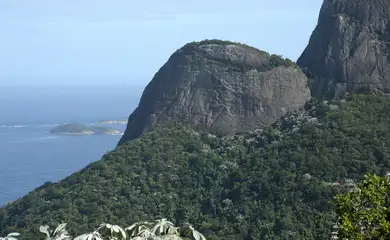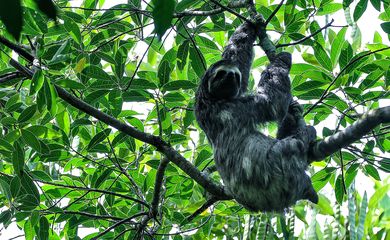Atlantic forest gets four tons of endangered juçara palm seeds

A joint action by social movements and public agencies dumped approximately four tons of seeds of the endangered juçara palm tree (Euterpe edulis) across an area of 67 hectares in the Quedas do Iguaçu reserve, in the southern state of Paraná, on Wednesday (Jun. 7).

The seeds were dropped from a Federal Highway Police helicopter in the reserve of the land-reform community of Dom Tomás Balduíno as well as on the slopes of the Iguaçu River—an area flooded after the dam of the Salto Osório powerplant was erected.
Today, over 2.5 thousand families live in the region, which became deteriorated after a company used the soil for pine and eucalyptus monoculture. The seeds released have “high germination potential” when in their natural habitat, a note by the Ministry of Justice, which spearheaded the initiative, says.
Extinction
The illegal extraction of the juçara heart of palm has brought the species under risk of extinction, as it does not regrow. The fruit, however, with smooth skin and a thin pulp surrounding the seed, is similar to the açaí, and can be sold.
According to the ministry, the production and processing of the pulp in the Dom Tomás Balduíno community yield a yearly three tons of pulp, and boasts potential for growth. “After the families get the necessary pulping and storage equipment, the production potential will be five to six tons.”
“Rich in antioxidants, the pulp is a key food item for traditional communities. But it is also used in the production of ice cream, flour, sweets, and juices,” the note goes on to read.




